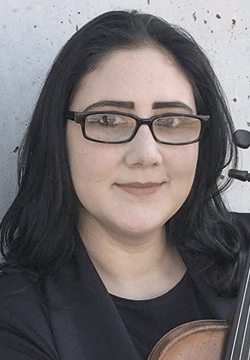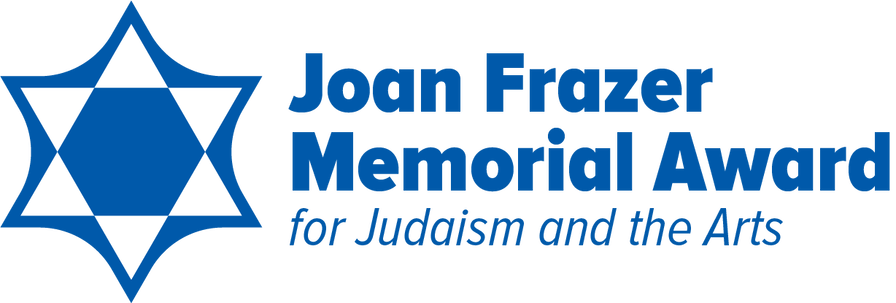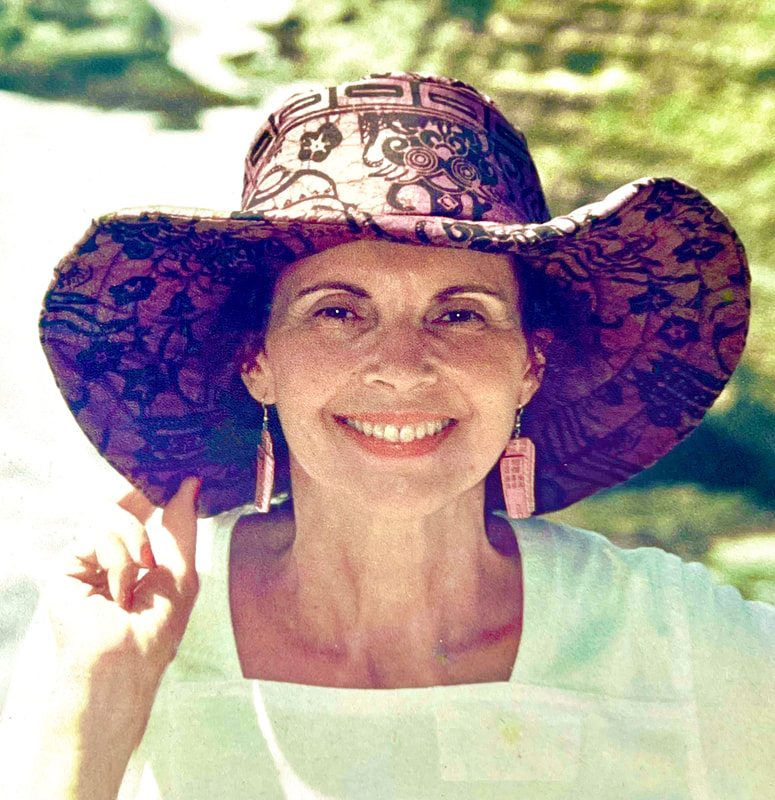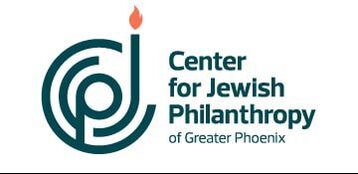Joan frazer memorial award for Judaism and the arts
WE’RE BACK!!!
SUBMIT YOUR PROPOSAL FOR A WORK OF JEWISH-INSPIRED ART!
TWO ARTISTS WILL BE AWARDED $3,000 EACH TO BRING THEIR WORKS TO LIFE!
PROPOSALS ARE DUE MARCH 1, 2024
Since 2002, The Joan Frazer Memorial Award for Judaism and the Arts has uplifted the voices of student artists. After a 3-year hiatus, the award is back — and it's bigger and better than ever!
The Frazer Award is a prestigious honorarium that celebrates the original, artistic expressions of Phoenix-area college students by funding the proposals of up to two artists who wish to create a specific work or set of works that engage with Judaism, Jewish life, Jewish learning, or Jewish culture.
Through the award, Hillel at ASU hopes to highlight the skill of Phoenix-area student artists and deepen connections with the artists by encouraging artistic explorations of Jewish identity and peoplehood. Award winners will receive funding for their projects and the opportunity to showcase their work to art patrons in the Greater Phoenix area.
APPLY HERE!
The Award Process
How it works
The Joan Frazer Memorial Award Committee, composed of ASU faculty, Hillel representatives, and members of the Frazer family, will award up to 2 students each with $3,000 to sponsor the creation of the proposed work(s). Upon approval of the proposal and budget, half of the funds will be distributed to the winners, with the remaining half to be distributed after the works are presented at the community event.
Applicants must submit the following by 11:59 p.m. on March 1st, 2024, to be considered:
The Committee will conduct an initial review of the applications, and select finalists will be invited to a personal interview with committee members in April 2024.
Winning projects must be completed by 11:59 p.m. on April 29, 2025. The projects will be presented in some capacity to the Greater Phoenix community in early May, shortly following ASU graduation.
Note: Winning applicants must present their works at the community event in May of 2025. The event’s date and time will be announced to winners long in advance, and plans should be made to be in town and available on the date. Failure to attend and present your completed work at the event will result in losing the second half of the award funds.
Applicants must submit the following by 11:59 p.m. on March 1st, 2024, to be considered:
- A written application, including a statement describing the proposed project and addressing its relevance to Judaism.
- Applicants will be asked to explain what makes their presentation of the work(s) original, especially if their proposal reimagines existing work(s). (e.g., a production of theater or opera)
- Applicants will be asked to explain what makes their presentation of the work(s) original, especially if their proposal reimagines existing work(s). (e.g., a production of theater or opera)
- A resume/CV
- A portfolio of the student’s past work– preferably including at least one example of a work in the same artistic medium as the proposed project.
- A letter of recommendation from a college or university faculty member or another individual who can attest to the applicant's artistic skill and work ethic.
- A simple budget detailing how the awarded funds will be used to assist in offsetting the costs of the project:
- Budgets do not need to account for the entire sum of the award money. Any remaining funds will be considered an honorarium.
- Budgets do not need to account for the entire sum of the award money. Any remaining funds will be considered an honorarium.
The Committee will conduct an initial review of the applications, and select finalists will be invited to a personal interview with committee members in April 2024.
Winning projects must be completed by 11:59 p.m. on April 29, 2025. The projects will be presented in some capacity to the Greater Phoenix community in early May, shortly following ASU graduation.
Note: Winning applicants must present their works at the community event in May of 2025. The event’s date and time will be announced to winners long in advance, and plans should be made to be in town and available on the date. Failure to attend and present your completed work at the event will result in losing the second half of the award funds.
who can apply?
Applicants must be a currently-enrolled undergraduate or graduate student at ASU or a current student at one of the Maricopa community colleges.
Applicants are not required to be Jewish or to be pursuing a degree in the arts, but should be able to demonstrate high levels of proficiency in their chosen medium.
Applicants are permitted and encouraged to collaborate with peers and submit joint proposals. Projects are only eligible to receive $3,000 regardless of the number of collaborators.
Applicants are not required to be Jewish or to be pursuing a degree in the arts, but should be able to demonstrate high levels of proficiency in their chosen medium.
Applicants are permitted and encouraged to collaborate with peers and submit joint proposals. Projects are only eligible to receive $3,000 regardless of the number of collaborators.
What kind of proposals are you looking for?
Proposals from the full range of artistic disciplines will be considered: visual arts, performing arts, architecture, literary arts, film, design, music, digital art, and any combination thereof. Multi-disciplinary and multi-medium projects are highly encouraged, and applicants can submit joint applications with their peers for collaborative projects.
Successful applications will present a portfolio demonstrating high proficiency in the chosen artistic medium and propose a new work that engages personally and profoundly with Jewish culture and tradition. Additionally, as this award celebrates the community-building power of the arts, the best proposals will thoughtfully address the community presentation of the work(s), a required and essential part of the award process.
Still not sure if your idea is what we are looking for? We asked a past Frazer Award committee member which proposals and projects were the most memorable. Here are some of their answers:
Successful applications will present a portfolio demonstrating high proficiency in the chosen artistic medium and propose a new work that engages personally and profoundly with Jewish culture and tradition. Additionally, as this award celebrates the community-building power of the arts, the best proposals will thoughtfully address the community presentation of the work(s), a required and essential part of the award process.
Still not sure if your idea is what we are looking for? We asked a past Frazer Award committee member which proposals and projects were the most memorable. Here are some of their answers:
- Our most outstanding projects have artistic integrity and deep engagement with the Jewish tradition. The best projects will further the artist’s Jewish learning, their Jewish identity, and their artistic skill.
- "In 2002, the first year of the Frazer Award, one artist made a ceramic replica of the Western Wall. She researched and presented how the Temple informs and affects her Jewish values. It was beautiful to see how her work on the project strengthened her connection to Judaism and her Jewish values."
- "More recently, several musicians have presented works by lesser-known Jewish composers. Their performances' artistry and technical mastery were jaw-dropping, and each artist had a unique theme that tied together their recital programs. Some have even maintained a relationship with the Frazer family since their presentations, demonstrating their commitment to the Jewish community."
- "One year, we had a student of Ukrainian descent who had traveled to Ukraine for her graduate research. She took photos of the Jewish communities in Ukraine and crafted a beautiful gallery of her work. The project engaged with her personal Jewish identity, and grew her knowledge of Eastern European Jewish culture and practice."
full timeline 2024-2025
- Applications Due: March 1, 2024
- Finalist Interviews: TBD, April 2023
- Recipient Announcement: TBD, Late April/Early May,
- Disbursement of $1,500: Upon Announcement of Recipients
- Disbursement of $1,500: Upon Announcement of Recipients
- Check-In with Committee: TBD, October 2024
- Completed Project Due: April 30, 2025
- Community Presentation: TBD, May 2025
FRAZer award winners: Where are they now?

Dr. Alexandra Birch – 2015 Frazer Award Recipient
Dr. Alexandra Birch has a diverse career as a violinist and scholar. She has toured extensively in the USA, Asia, Russia, and Europe in over 20 countries including performances in Carnegie Hall, the Bolshoi Theatre, and is a prizewinner in numerous national and international competitions. Dr. Birch holds a BMus, MMus, and DMA from Arizona State University where she was a student of Katherine McLin and is presently a PhD student in History at UC Santa Barbara working with Adrienne Edgar. Dr. Birch’s research focuses on recovered music and the arts under duress. As an Alexander Grass Memorial Fellow (postdoc) at the US Holocaust Memorial Museum, she released Soviet Memories (2019) and Musical Stolpersteine (2020) and later, Vnye (2021) for the 30 year collapse of the USSR. Her 2022-23 season includes the premiere of Vsevolod Zaderatsky’s Violin Concerto – a Ukrainian composer interned in Magadan. Her performances and albums feature recovered scores from her research in international archives alongside major classical sonatas. She has held research fellowships through the Wilson Center, the Auschwitz Jewish Center, NEH/Kean University, Title VIII/The Melikian Center, and the Bergen Belsen Memorial. Her upcoming monograph (University of Toronto Press) Hitler’s Goetterdaemmerung: Music and The Orchestration of War and Genocide in Europe examines Wagnerian myth and music as central elements of Nazi statecraft and genocide.
Dr. Birch received the Frazer Award in 2015 for her project entitled Music as Resistance to Genocide. She is currently a Senior Fellow at the Vienna Wiesenthal Institute for Advanced Holocaust Studies in Austria. Her work focuses on recovered music from mass atrocity in the former USSR including the Holocaust and the Gulag. She credits the Frazer Award with helping to uncover her passion for blending performance with academic study.
Dr. Alexandra Birch has a diverse career as a violinist and scholar. She has toured extensively in the USA, Asia, Russia, and Europe in over 20 countries including performances in Carnegie Hall, the Bolshoi Theatre, and is a prizewinner in numerous national and international competitions. Dr. Birch holds a BMus, MMus, and DMA from Arizona State University where she was a student of Katherine McLin and is presently a PhD student in History at UC Santa Barbara working with Adrienne Edgar. Dr. Birch’s research focuses on recovered music and the arts under duress. As an Alexander Grass Memorial Fellow (postdoc) at the US Holocaust Memorial Museum, she released Soviet Memories (2019) and Musical Stolpersteine (2020) and later, Vnye (2021) for the 30 year collapse of the USSR. Her 2022-23 season includes the premiere of Vsevolod Zaderatsky’s Violin Concerto – a Ukrainian composer interned in Magadan. Her performances and albums feature recovered scores from her research in international archives alongside major classical sonatas. She has held research fellowships through the Wilson Center, the Auschwitz Jewish Center, NEH/Kean University, Title VIII/The Melikian Center, and the Bergen Belsen Memorial. Her upcoming monograph (University of Toronto Press) Hitler’s Goetterdaemmerung: Music and The Orchestration of War and Genocide in Europe examines Wagnerian myth and music as central elements of Nazi statecraft and genocide.
Dr. Birch received the Frazer Award in 2015 for her project entitled Music as Resistance to Genocide. She is currently a Senior Fellow at the Vienna Wiesenthal Institute for Advanced Holocaust Studies in Austria. Her work focuses on recovered music from mass atrocity in the former USSR including the Holocaust and the Gulag. She credits the Frazer Award with helping to uncover her passion for blending performance with academic study.
| Birch_2023_cv.pdf | |
| File Size: | 179 kb |
| File Type: | |
|
Monica Sampson — 2017 Frazer Award Recipient
Monica Sampson is an award-winning, Actor, Director, and Media Personality holding a double bachelor's degree in Broadcast Journalism and Theater, from the Walter Cronkite School of Journalism at ASU. Her experience spans internationally to the West End, to Shakespeare’s Globe Theater in London, where she trained in a production of Hamlet. Sampson’s credits include Off-Broadway work, films, and commercials. Sampson directs and acts locally in Arizona; and has been featured on NPR, PBS, NBC, The Phoenix Theatre Company, Childsplay, Arizona Theater Company, and more. Sampson is the Resident Intimacy Coordinator for Stray Cat Theatre and is in the process of continuing her education to be a SAG certified Intimacy Coordinator through the Principal Intimacy Program, with the Screen Actors Guild. Sampson is a passionate educator and is the proud owner of her own acting and singing studio serving clients from ages eight to eighty-eight, her clients have been featured Broadway, National Tours, and right here in Arizona. Sampson, a plus-size, Jewish, queer woman, centers diverse storytelling as the foundation for all her work. Interested in connecting? You can find Sampson on all social media platforms! Sampson received the Frazer Award in 2017 for her documentary Unboxing: What it Means to Be a Jewish Millennial in America. The documentary explores her, and other Jewish folks' experiences with modern Judaism, connecting to their roots, and place in the world as Jews. |
"I am continuously grateful for the incredible opportunities that Hillel and the Joan Frazer Memorial Award for Judaism and the Arts, award me during my time at ASU. As a Jewish Artist Hillel always made it possible for me to connect to my Jewish roots, helping to feed me, providing me companionship, education, and most of all connection to my Jewish community. I will forever be grateful to Hillel and the Joan Frazer Award for this truly life-affirming experience I received."
Click for a preview of Unboxing: What it Means to be a Jewish Millennial in America. |
About joan frazer
|
Joan Mintzer Frazer was born and raised in Rutland, Vermont. She met her husband, David at the University of Michigan. In 1966, she received a master’s degree in speech pathology from ASU. In addition to serving as a speech therapist in the Phoenix public schools, Joan was a co-founder of Communications Skill Builders, Inc., a company that developed products for speech teachers. She later founded Contacts and Connections, an introduction service well before computers and apps. Joan was a successful matchmaker—210 people were married over her 12 years in business.
Joan was the first president of Jewish Business and Professional Women, and a Board member of ASU Hillel and the local branch of the Jewish National Fund. Joan was a keen patron of the arts. Along with David, she created an eclectic collection of visual arts—from contemporary sculpture to southwest pottery to paintings of every genre. Joan was someone who was great at connecting people who might never have otherwise met. She understood that what we can accomplish together is far greater than what we can hope to accomplish alone. |
Following her death in 1999, David established the Joan Frazer Memorial Award in her honor. The award it is administered with the assistance of her sons Zvi of Fox Point, Wisconsin, and Dov of Sydney Australia, along with the ASU Hillel staff.
|



